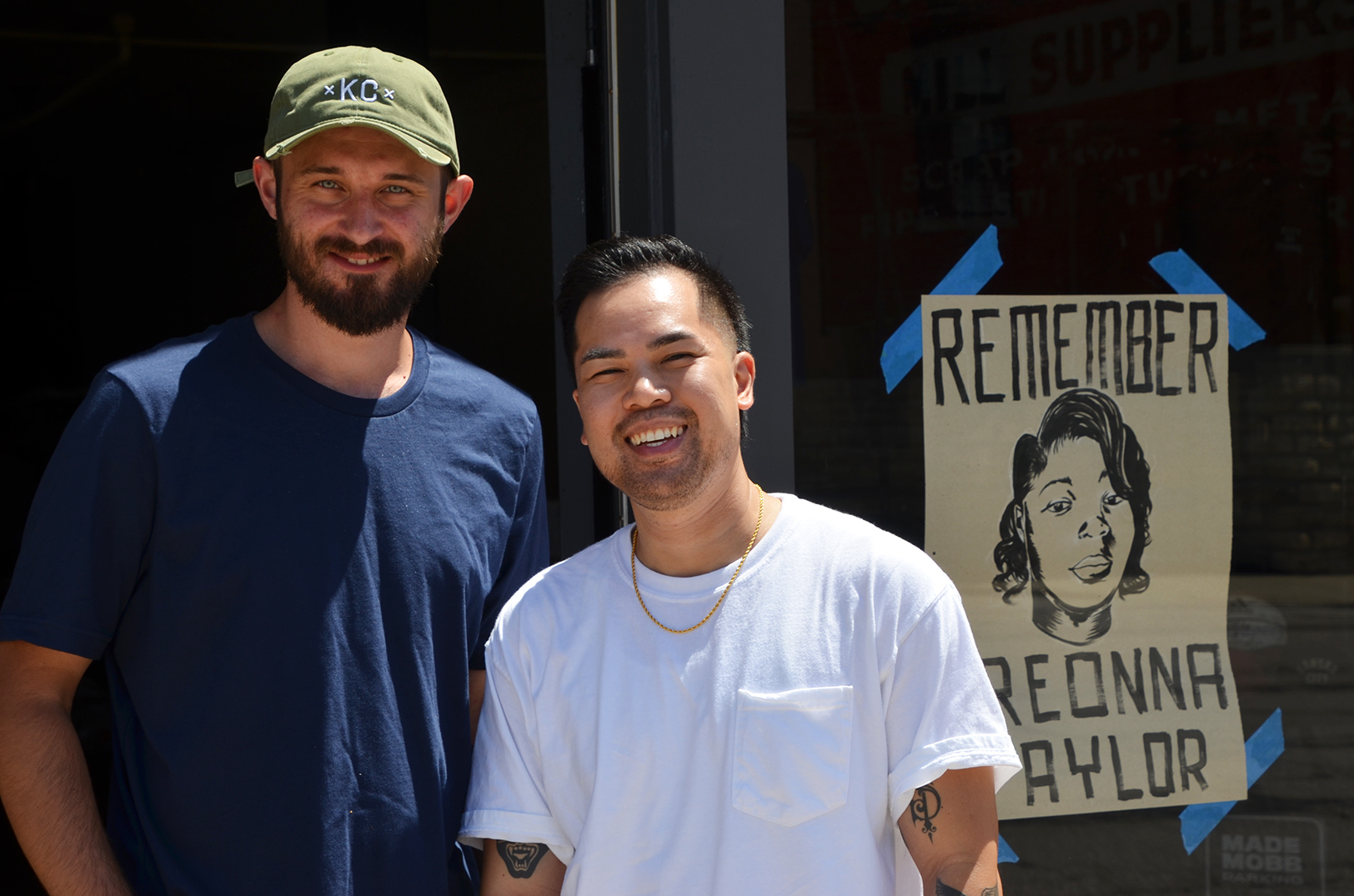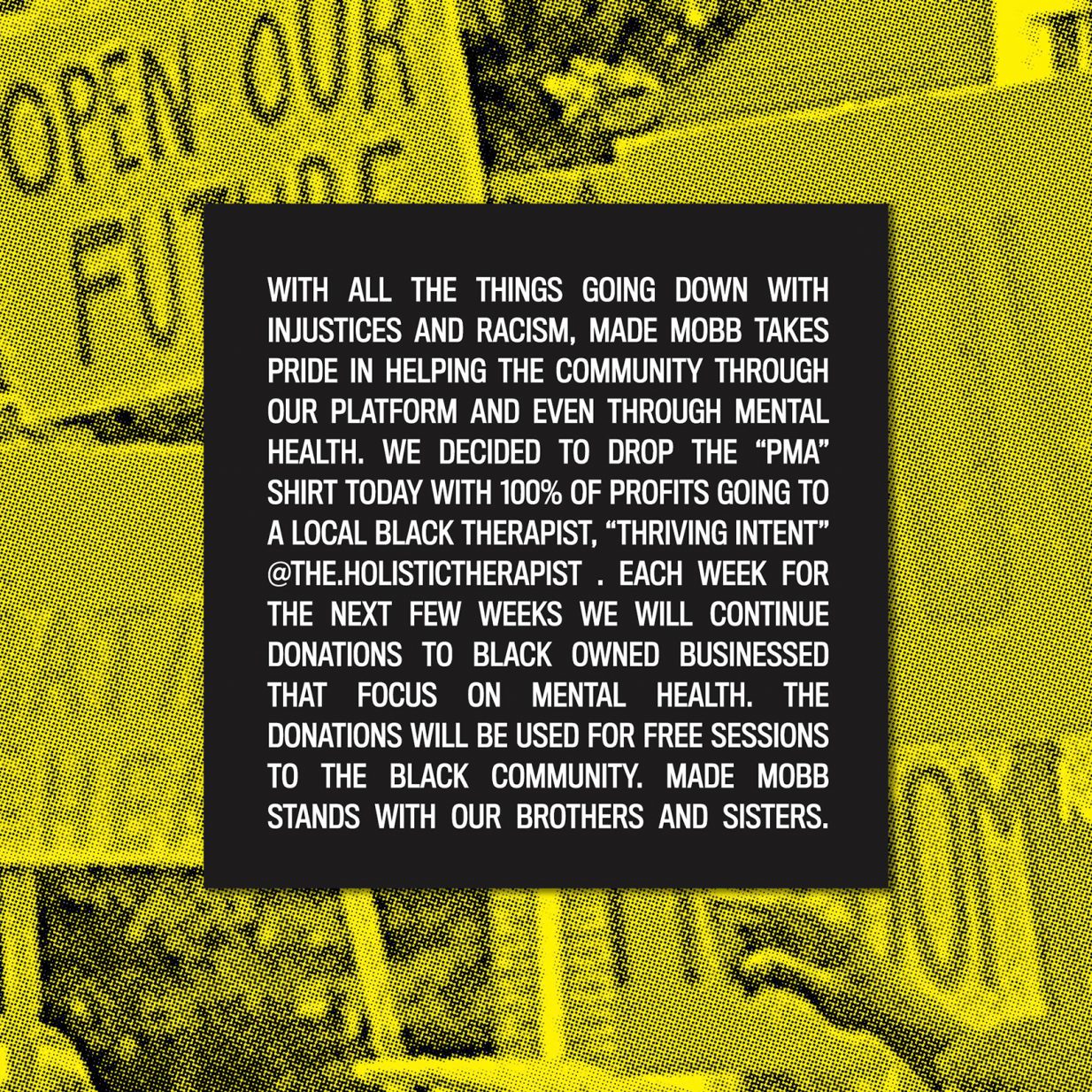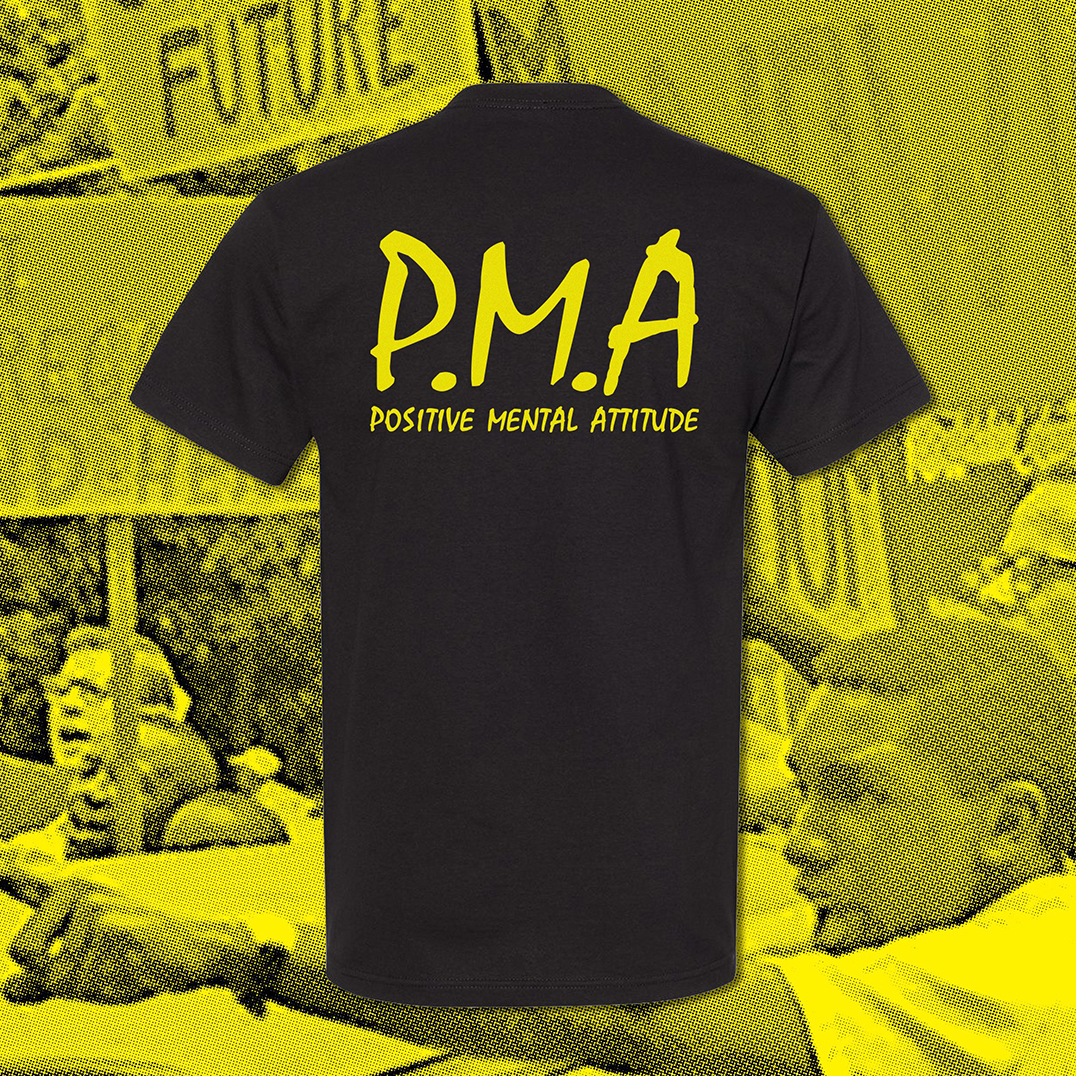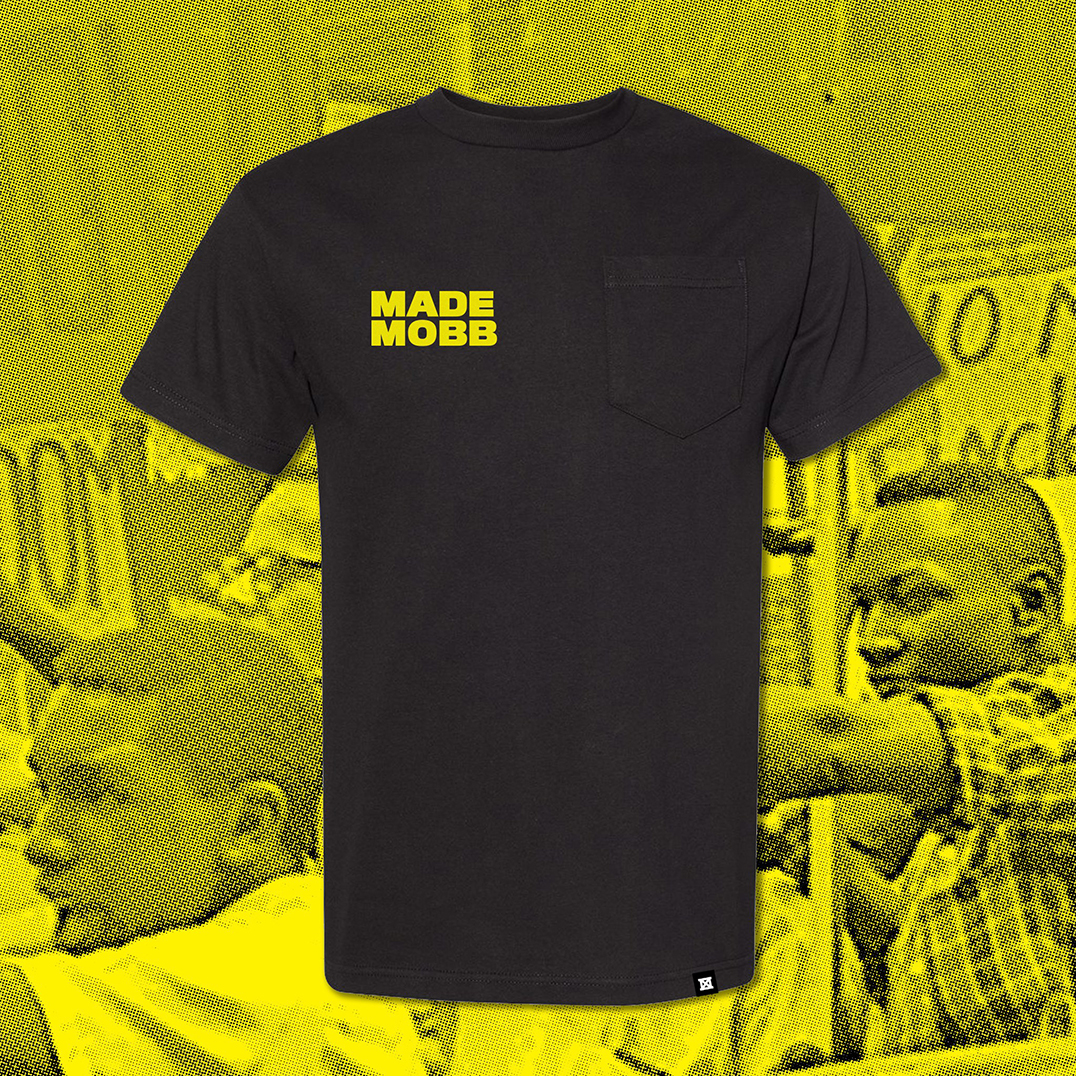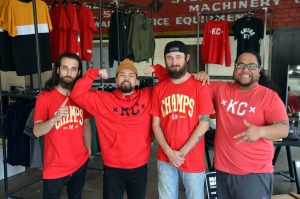No health, no hustle, said Vu Radley, detailing MADE MOBB’s recently launched effort to fund free therapy sessions for members of the Black community.
“Mental health isn’t something that’s talked about a lot within minority groups. For me, growing up, it wasn’t,” said Radley, co-founder of MADE, emphasizing newly heightened stress and super-charged anxiety for people of color amid ongoing protests against police brutality and systemic racial injustice.
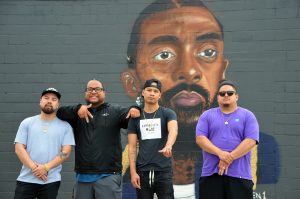
Vu Radley, Mark Launiu, Jesse Phouangphet, and Max Ayalla, MADE MOBB/MADE Urban Apparel; mural by Jonathan Munden
“That’s our base. The majority of our audience — and our diverse team — is minorities, and we stand by our brothers and sisters,” he added. “We have to speak out, and this feels like the least that we could do.”
The Kansas City-based streetwear brand on Friday unveiled the first of four preorder apparel drops — each set to send 100 percent of proceeds to select Black-owned therapists or mental health businesses that will then offset the costs of limited sessions for members of KC’s Black community who don’t have access to such resources, Radley said. Weekly pre-orders run Friday through Monday, offering a new design with each drop.
Click here to shop MADE MOBB or watch for the next preorder drop.
The first design featured a simple, clean message — “Positive Mental Attitude” — in the style of the 1990s hip hop aesthetic that has come to define MADE’s popular apparel line.
Click here to read more about the design and attitude behind MADE MOBB.
“We’re blunt, straight-forward, but really make a statement,” Radley said. “That’s how we speak. We make T-shirts, so at a time like this, it’s the way we know how to push back.”
For the team at MADE, specifically focusing on mental health is personal, he said.
Starting the business seven years ago alongside co-founders Mark Launiu and Jonathan “JP” Platz, the business — and its owners — have seen their fair share of “trials and tribulations,” Radley said.
“We realized that to be at our best, we had to make sure we had our mental straight — and when that was right, we could work as a well-oiled machine,” he said. “You gotta take care of your people. I expect you to work and take care of shit, but I also need to recognize if my friend next to me is off, if something seems wrong, I need to be there for them.”
“A lot of us went through anxiety and depression and things like that,” Radley continued. “It took a while to get past it. But it’s a lot easier if you talk to someone who’s going through the same thing — or someone trained to help you through the situation. These things in your mind can be a blockage that’s actually stopping you from the hustle you’re meant to do.”
When the mind works, the body follows, he emphasized.
“Don’t feel bad about pulling me aside. That’s what family is for. We’re in this business together as a team, but we’re also a family,” Radley said. “We have to take care of each other — and for us, that means expressing that to the community too.”
The community, in turn, has helped MADE survive the challenges of COVID-19, which temporarily shut down the brand’s Southwest Boulevard shop — after a wildly successful football season saw the company soar to new sales heights with its Chiefs-inspired apparel — and has limited business largely to online sales, he said.
“The support base in Kansas City has been amazing,” Radley said, noting continued local purchases have made it possible for the company to keep paying its rent and employees — and have enough left over to benefit causes like funding mental health sessions.
Click here to read about MADE’s strong showing during the Chiefs’ Super Bowl run.
Early on, MADE quickly shifted its focus to unloading unsold inventory — shelved because wholesale buyers also shut down during the pandemic — and opening preorder drop sales to help better identify exact demand before production, he said.
Previous preorder drops also featured a donation element, with $5 of each sale “going to another local business that we knew was in the same boat as we were,” Radley said, noting campaigns to benefit Crossroads Kitchen, SewKC, Harvesters and others.
“Since the beginning, we’ve been down in the trenches,” Radley said. “We’ve been there before, so we knew we were going to get out of it, but we had to get creative to really push ourselves out — with help.”
This story is possible thanks to support from the Ewing Marion Kauffman Foundation, a private, nonpartisan foundation that works together with communities in education and entrepreneurship to create uncommon solutions and empower people to shape their futures and be successful.
For more information, visit www.kauffman.org and connect at www.twitter.com/kauffmanfdn and www.facebook.com/kauffmanfdn




